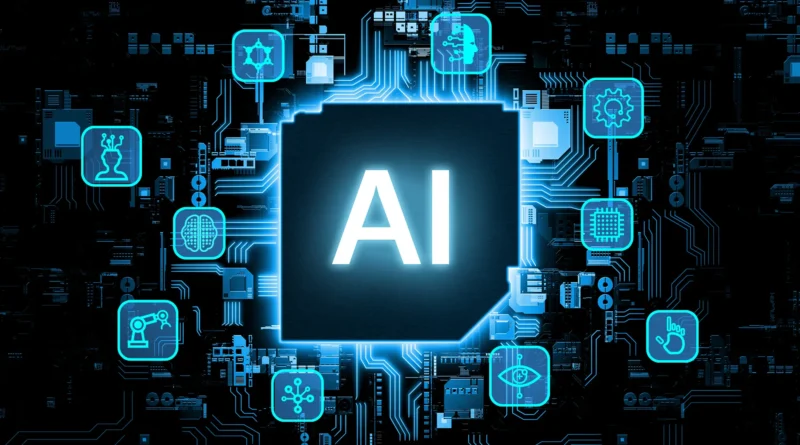Detector de IA The Truth Behind AI Detection Tools and How They Work
Introduction
So you’ve been hearing about AI detectors, or in Spanish Detector de IA and you’re wondering, what’s the big deal? Whether you’re a student, content creator, business owner, or just curious about the tech world, this is something you’ll want to get the full scoop on. Let’s dive into the world of AI detectors and break it all down in plain, human-talk.
Why the Rise of AI Content Matters
Let’s face it, AI-generated content is everywhere now. From blog posts and essays to product descriptions and emails—robots are writing a lot of what we read. That’s both fascinating and kind of scary, right? The big question is, how can we tell what’s written by a human and what’s created by a machine?
Understanding the Term ‘Detector de IA’
In simple terms, “Detector de IA” means “AI detector” in Spanish. These tools are designed to analyze text and figure out if it was generated by AI (like ChatGPT, for example) or if a human wrote it.
What Is a Detector de IA?
Basic Definition
A detector de IA is a tool that scans a piece of content and determines whether it’s AI-generated or human-written. Think of it as a lie detector—but for text.
Tools That Use AI Detection
There are now dozens of platforms and software tools that offer this functionality, from academic software to online SaaS products.
How Do AI Detectors Work?
Natural Language Patterns
AI tends to use patterns that are statistically likely. Detectors analyze those patterns to see if they line up more with a bot or a human.
Sentence Structure and Predictability
AI is really good at being… well, too good. It writes in ways that can be overly polished or too uniform, and detectors catch that.
Word Probability Algorithms
Tools like GPT work by guessing the next most probable word. Detectors reverse-engineer this process to see if the content fits that prediction model.
Popular Detector de IA Tools in the Market
Originality.ai
This one is popular with SEO pros and bloggers. It’s accurate and designed specifically for content marketers.
GPTZero
Designed for schools and academic settings. It’s one of the more strict detectors out there.
Turnitin and Other Academic Tools
Turnitin has added AI detection to its plagiarism tool. It’s becoming a go-to for teachers and universities.
Writer.com AI Content Detector
Geared toward businesses, this tool provides fast feedback on whether your team’s content seems “too AI.”
Can AI Detectors Actually Detect AI Content Accurately?
The Accuracy Debate
Honestly? It’s hit or miss. No tool is 100% accurate. Some content that’s clearly human gets flagged, and some AI content slips through.
False Positives and Limitations
One of the biggest issues is false positives. Imagine being accused of cheating when you wrote something with your own hands—that’s a problem.
Human Writing vs AI Writing
Key Differences
Humans write with emotion, nuance, and sometimes even with a bit of randomness. AI writes with efficiency and structure.
How Detectors Pick Up on Subtle Cues
If your writing feels too symmetrical, uses common phrasing, or lacks variation in sentence length—detectors might say, “Bot alert!”
Why Use an AI Content Detector?
Academic Integrity
Schools want to ensure students are doing their own work, not relying on bots.
SEO and Web Publishing
Google doesn’t love AI content—at least not the generic kind. Publishers want to stay in good standing.
Journalism and Authenticity
Newsrooms are using detectors to ensure the content being published is authentic and trustworthy.
Challenges with Detector de IA Tools
Language Barriers
Most tools are trained in English. So if you’re writing in Spanish or another language, results may vary wildly.
Evolving AI Models like GPT-4 and Beyond
As AI gets smarter, detectors need to keep up. It’s a cat-and-mouse game.
How to Make AI-Generated Text More Human-Like
Tone, Flow, and Rhythm
Use contractions, vary sentence length, and avoid sounding robotic. Write like you talk.
Incorporating Personal Experiences and Emotions
This one’s big. AI doesn’t have a life. Mention your personal stories, feelings, and opinions—that’s your human signature.
Ethical Implications of AI Detection
Transparency vs Privacy
Should people be told their content is being scanned? Where’s the line between checking and spying?
Control Over Content Creation
Is it fair to restrict AI tools when they’re just another form of assistance? Everyone uses spell check, right?
Future of AI Content Detectors
Smarter Algorithms
Expect detectors to get better, learning from more data and adjusting for evolving AI models.
How to Test Your Content with a Detector de IA
Step-by-Step Guide
- Copy your text.
- Visit a trusted detector like Originality.ai or GPTZero.
- Paste your text and scan.
- Analyze the results.
- Make edits as needed.
What to Look for in Results
High AI probability? Consider rewriting sections with more personal voice and unique structure.
Real-Life Scenarios Where AI Detectors Matter
Education
Students and teachers both need to be aware of AI usage to maintain academic honesty.
Business and Marketing
Companies want to sound real and relatable—detection helps avoid sounding like a bot.
Freelance Writing
Clients might scan your work. If it reads like AI, you could lose trust or the gig.
Tips to Avoid Detection When Using AI Content Responsibly
Mixing AI Output with Human Touch
Let AI assist, but don’t let it take over. Rewrite, add anecdotes, and tweak the tone.
Using AI for Brainstorming, Not Final Copy
Use it to break writer’s block or generate ideas—but always finish the job yourself.
Conclusion
AI is here to stay. But so is human creativity. Tools like Detector de IA are helpful for keeping things in check, but they’re not perfect. The best approach? Use AI wisely, stay honest, and always add your personal flair. That’s how you stay on the right side of tech—and make your voice heard.
See More Visit Website: Click Here




